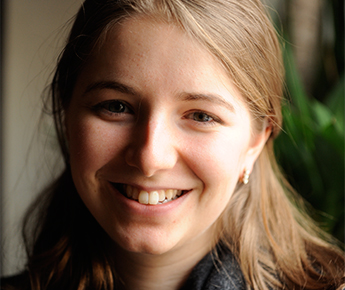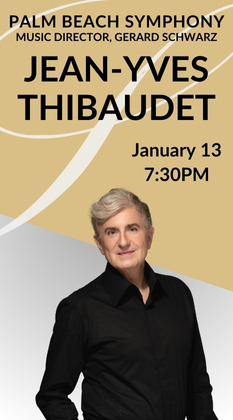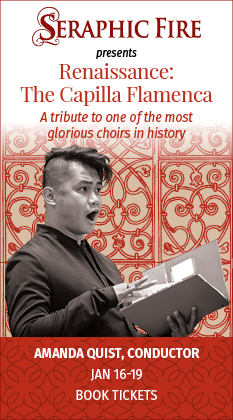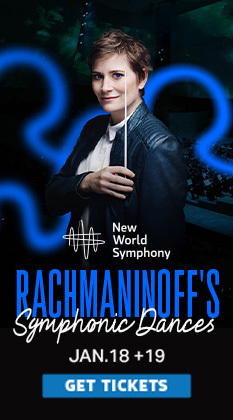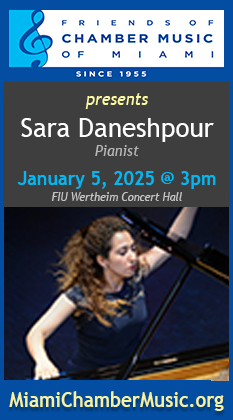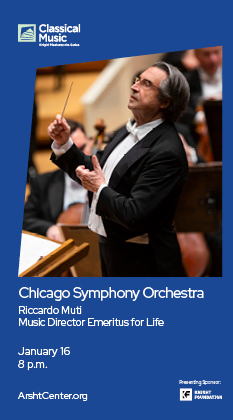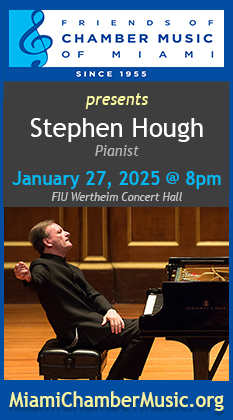New World flutist brings élan to American music
New World Symphony fellow Masha Popova presented an enterprising evening of works for flute by American composers Monday night at New World Center’s intimate Sun Trust Pavilion. She was joined by her mother Svetlana Krasnova at the keyboard as well as three New World wind players (in a quirky chamber score by the king of American modernists Elliot Carter).
Popova’s diverting hour-long program opened with Samuel Barber’s Canzone. Barber was noted for the lyricism of his slow movements, the famous Adagio from his string quartet being the most famous example. The second movement of his piano concerto featured a typically haunting melody that Barber reset for flute and piano. Popova spun the mesmeric line in long phrases, her ease of projection well displayed.
Aaron Copland’s Duo for flute and piano was commissioned by a group of students of legendary flutist William Kincaid. Kincaid was principal flute of the Philadelphia Orchestra and taught for four decades at the Curtis Institute where Popova studied with his grandson.
The three-movement score is one of Copland’s late works dating from 1971. The Duo begins in the composer’s trademark Americana style, the open intervals suggesting the Shaker aura of Appalachian Spring. The second movement is a nocturnal pastorale with touches of astringency. Popva’s glistening tone embraced the affecting melodic writing but she really came into her own with the jazzy final movement, tossing off the triple-tongued passages with spirit and accuracy. With Krasnova’s nimble support, Popova captured Copland’s mix of verve and elegant craftsmanship.
Carter’s Eight Etudes for woodwind quartet explore the differing timbres of the flute, oboe, clarinet and bassoon while presenting the players with a plethora of technical challenges that exploit the ranges of each instrument. For all of Carter’s later thorny atonality, this 1950 work is rich with flights of whimsy and wit. The Vivace movement is a vastly entertaining neo-Stravinsky romp while the Andante actually features a languid (even tonal) melodic thread, beautifully articulated by oboist Max Blair.
In the Allegretto leggero, Carter makes every instrument play at its extremes in a burble of snarling sounds. Sean Maree was the outstanding bassoonist, projecting a large tone and firm low notes. The final Presto is lively and impulsive. Ran Kampel’s agile clarinet and Popova’s ease in the flute’s whirling figures probed and conquered Carter’s minefield of wind intricacies.
Popova provided charming commentary throughout the program. In introducing Lowell Lieberman’s Flute Sonata (1988), she said the score reminds her of Prokofiev’s music. The long, austere Lento that opens Lieberman’s lovely score could just as easily be compared to one of Bartok’s night music movements in its darkness. Popova exhibited exquisite control and even tone and sped through the score’s Presto energico finale with élan.
The New World’s cozy chamber music hall is a wonderful space. With Frank Gehry’s angular designs around the performance platform and acoustical baffles on the walls, the room is inviting and the sound is clear and immediate. Even the most high-pitched flute writing never sounded harsh or grating.
The New World Symphony’s Solo Spotlight series continues 7 p.m. March 21 at the New World Center Sun Trust Pavilion with flutist Emma Gerstein and harpist Julia Coronelli playing works by Bozza, Debussy, Grandjany and Ravel. The concert is free but reservations are required. nws.edu; 305-673-3331.
Posted in Performances
Leave a Comment
Tue Jan 26, 2016
at 8:02 pm
No Comments
